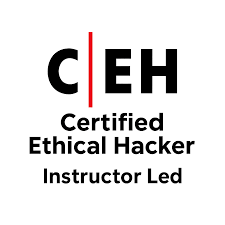Palo Alto Training – Learn Palo Alto Firewalls in 2025

Certifications CCSA et CCSE : Devenez expert en cybersécurité La cybersécurité est un domaine en constante évolution, et les entreprises recherchent constamment des professionnels capables de protéger leurs réseaux et leurs informations. Parmi les leaders de l’industrie, Check Point se distingue par son expertise en sécurité réseau et en prévention des menaces. Les certifications […]


Certifications CCSA et CCSE : Devenez expert en cybersécurité
La cybersécurité est un domaine en constante évolution, et les entreprises recherchent constamment des professionnels capables de protéger leurs réseaux et leurs informations. Parmi les leaders de l’industrie, Check Point se distingue par son expertise en sécurité réseau et en prévention des menaces. Les certifications Check Point, telles que Check Point Certified Security Administrator (CCSA) et Check Point Certified Security Expert (CCSE), sont très prisées par les organisations du monde entier. Ces certifications valident vos compétences dans la mise en œuvre, la gestion et le dépannage des solutions de sécurité Check Point.
La certification CCSA est destinée aux professionnels souhaitant démontrer leur capacité à configurer et gérer les passerelles de sécurité Check Point. Elle constitue une excellente base pour les débutants dans le domaine de la sécurité réseau ou des solutions Check Point. Les compétences acquises incluent :
Obtenir la certification CCSA vous permet d’acquérir une expérience pratique et des connaissances solides pour mettre en œuvre des mesures de sécurité Check Point, garantissant ainsi la protection des infrastructures numériques de votre organisation.
La certification CCSE s’adresse aux professionnels expérimentés qui souhaitent approfondir leurs compétences. Elle valide votre capacité à configurer, optimiser et dépanner les systèmes de sécurité Check Point. Les titulaires de la CCSE sont capables de :
La certification CCSE est idéale pour ceux qui souhaitent relever des défis de cybersécurité plus complexes et gérer des systèmes de sécurité sophistiqués dans des environnements distribués.
Chez Secure Valley, nous proposons des formations certifiantes pour le CCSA et le CCSE, adaptées aux professionnels marocains. Nos programmes sont disponibles en différents formats, notamment des sessions animées par des instructeurs et des cours en ligne, afin que vous puissiez apprendre à votre rythme ou bénéficier d’un accompagnement direct d’experts.
Une fois la formation terminée, vous serez prêt à passer les examens de certification. Notre équipe vous accompagne tout au long de la préparation pour garantir votre succès le jour de l’examen.
Investir dans les certifications CCSA et CCSE vous apporte les compétences et l’expertise nécessaires pour devenir un professionnel de la cybersécurité très recherché. Que vous débutiez dans ce domaine ou souhaitiez approfondir vos compétences, les certifications Check Point vous offrent un avantage concurrentiel indispensable dans le secteur en constante évolution de la sécurité réseau.
La cybersécurité est un enjeu majeur dans un monde de plus en plus connecté. Malgré les efforts des entreprises pour renforcer leurs systèmes, les comportements des utilisateurs restent une faille importante. Voici les erreurs les plus fréquentes qui compromettent la sécurité et comment les éviter.
Beaucoup d’utilisateurs choisissent des mots de passe simples comme “123456” ou “password”, ou réutilisent les mêmes sur plusieurs comptes. Ces pratiques facilitent les cyberattaques, notamment le credential stuffing (attaque par réutilisation de mots de passe).
Solution :
Ignorer les mises à jour expose les systèmes à des vulnérabilités connues que les pirates peuvent exploiter.
Solution :
Télécharger des applications ou des fichiers depuis des sites non vérifiés peut introduire des logiciels malveillants.
Solution :
Les attaques de phishing restent l’une des principales menaces, car elles exploitent la confiance des utilisateurs en leur faisant cliquer sur des liens malveillants.
Solution :
Les réseaux Wi-Fi publics peuvent être surveillés par des attaquants qui interceptent vos données.
Solution :
De nombreux utilisateurs ne se forment pas aux bonnes pratiques de sécurité numérique, augmentant ainsi leur vulnérabilité.
Solution :
Ces erreurs courantes mettent en lumière un point essentiel : la cybersécurité ne repose pas uniquement sur les outils techniques, mais aussi sur les comportements des utilisateurs. En adoptant des pratiques simples mais efficaces, chaque individu peut contribuer à un environnement numérique plus sûr.
Get certified with industry-leading cybersecurity certifications from EC-Council, PECB, Palo Alto Networks, and more.

Learn from world-class instructors Collaborate with top professionals Advanced training...

The CEH is the world's leading cybersecurity certification, recognized by...

Onsite training course Led by an instructor Interactive sessions

Asynchronous, self-study environment Video-streaming format Flexible learning schedule
Adding {{itemName}} to cart
Added {{itemName}} to cart

